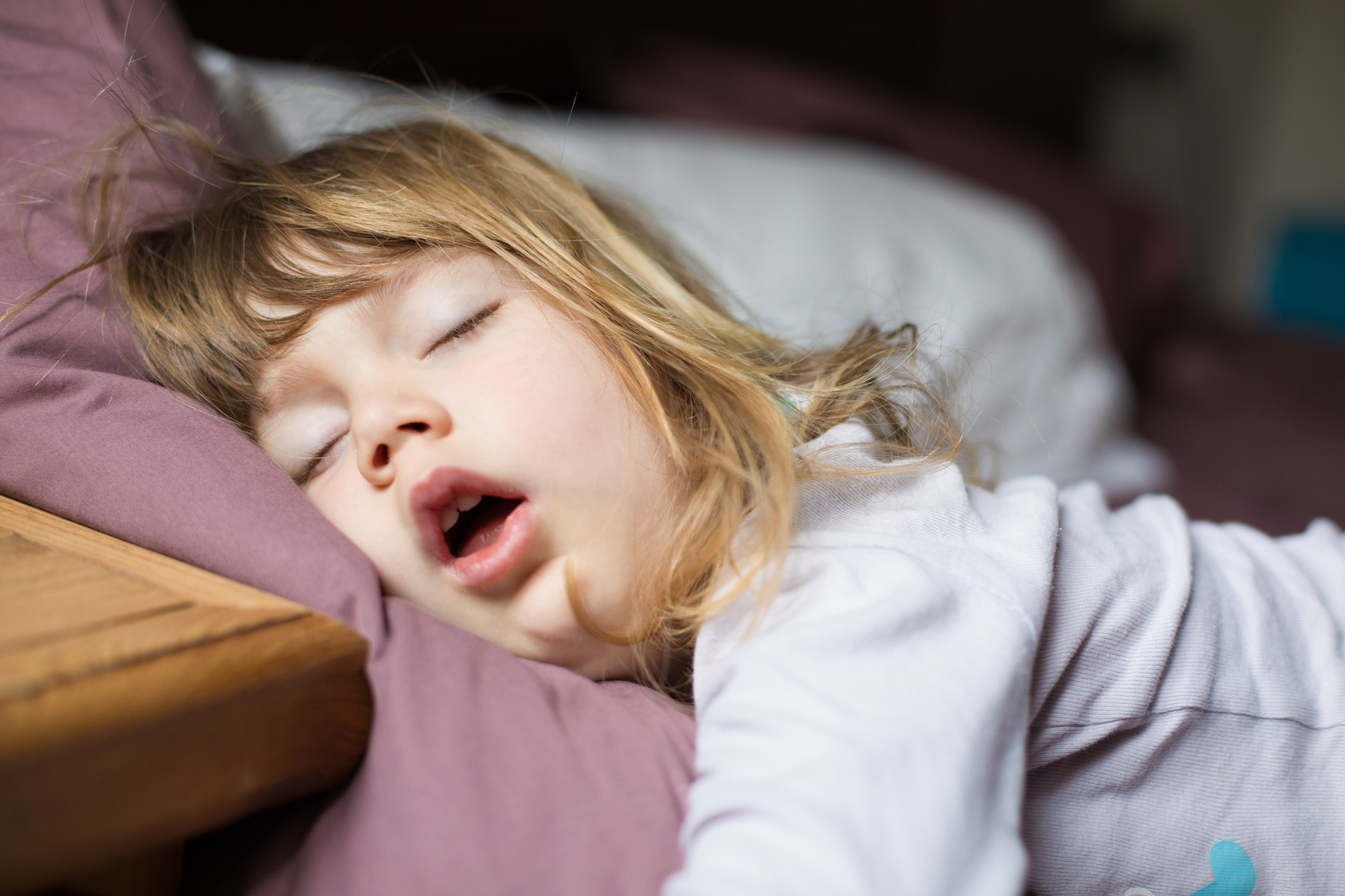It’s tough for any parent to discover that their child may have a medical issue, including a sleep disorder. While sleep disorders can come with varying degrees of severity, the majority of them can be treated. What’s important is that parents recognize the signs of sleep disorders so that they can get their child the right support and treatment. When dealing with a sleep disorder, it’s not just about treating the symptoms, but also understanding and treating the underlying causes.
Are you ready for your child to sleep better? Find out more about our tween and teen one-on-one program to help your family sleep better.
One of the most important keys in understanding how to identify potential sleep disorders in children is to know what signs to watch for. If you’re child shows one or more of the signs below, it’s time to make an appointment with your doctor.
Sign Up For Our Newsletter
- Frequent snoring or mouth breathing.
- Constant sweatiness while sleeping.
- Frequent restless sleep, from tossing and turning, to spinning in all directions, to sleep walking.
- Excessive daytime sleepiness throughout the day even after a full night of sleep.
- Unexplained bedwetting.
- Difficulty falling asleep and staying asleep.
- Early morning wakings.
While snoring used to be the telltale sign of a sleep disorder, restless sleep is now also considered to be a top indicator. When your child is moving around that much in bed, it’s a red flag that their body is uncomfortable during sleep, and therefore, it’s really important to find out what’s causing that kind of discomfort throughout the night. Now, let’s take a closer look at the most common sleep disorders that are diagnosed based on the symptoms listed above.
What Is Sleep Apnea?
Sleep apnea (or also known as obstructive sleep apnea) refers to when air flow is blocked, making it hard to breathe. Because the body knows that it needs oxygen, it constantly wakes the child at night in order to ensure that it gets the oxygen it needs. Large tonsils and/or adenoids get in the way for some children, making it hard for them to breath, and therefore, compromising sleep.
Read About The Founder Of Good Night Sleep Site’s Personal Experience With Sleep Apnea In Kids
If you think your child may suffer from sleep apnea, the best place to start is to arrange an overnight sleep study. During the study, your child will be observed as they sleep overnight (a parent stays with them overnight) in order to properly discern if they do indeed suffer from sleep apnea. The common form of treatment for sleep apnea is surgery to remove the tonsils and adenoids, so in addition to a sleep study, getting a referral to an ENT (ear, nose and throat) doctor is also a good idea.
Because surgery is the best option to resolve sleep apnea, we know that some parents are unsure as to whether or not it’s really necessary. Can you outgrow sleep apnea? Is it possible just to wait it out? Well, yes and no. Eventually your tonsils and adenoids do shrink as you grow, and typically by a child’s mid-teens they would no longer be an issue. However, in most cases, that means roughly 10 years of low quality, restless sleep, and that comes with big consequences. If not corrected quickly, sleep apnea can have a very negative impact on attention span, focus, concentration, and behavior and can lead to a mistaken diagnosis of ADHD.
What Is Restless Leg Syndrome?
Restless leg syndrome tends to run in families, so in many cases, parents are aware of what the signs and symptoms look like. By definition, restless leg syndrome is an unpleasant feeling in the legs that can only be relieved by movement. Some kids describe it as a tingling sensation or it feels like electric shocks, others describe it more like having their legs filled with water. Since the sensation is only relieved with movement, this means that these kids are constantly shifting and changing positions throughout the night.
The good news is, that in many cases, there is a common and simple solution. Low iron is one of the main causes of restless leg syndrome, so having your child’s iron levels tested is imperative. Starting them on the proper iron supplement dosage can make a huge difference in both the condition and in the quality of sleep they’re getting.
For those that find that iron supplements doesn’t improve the symptoms, there are also medications you can take to stop restless leg syndrome. The best way to really understand your child’s restless leg syndrome, and how it affects their sleep is to participate in an overnight sleep study.
What Is Mild Asthma?
This sleep disorder is the one that is hardest to diagnose and often goes undetected. Mild asthma means that the symptoms of typical asthma don’t appear in everyday life. Your child doesn’t have trouble with exercise, doesn’t often have a nighttime cough and gives no indication that asthma intervention is needed. However, when they sleep at night, their respiratory rate is increased which results in fragmented and disrupted sleep.
This sleep disorder is very common in kids who may have been diagnosed with asthma as a young child but haven’t shown outright symptoms in years. Unfortunately, they still could have a mild case of asthma that impacts their sleep – parents report great restlessness, sweating, and more frequent night wakings. Parents often guess that their child may have sleep apnea (even though snoring is not typically present), but a sleep study can reveal that mild asthma is the culprit.
Getting The Help Your Child Needs
Sleep disorders present differently in adults than they do in children, so it’s really important to have your child assessed by a pediatric team. The good news is that sleep disorders are very treatable, but it may take a while before your child is properly diagnosed. If they are suffering from restless, low quality sleep, know that there is a reason for it. So even if a sleep study comes back normal the first time, it’s a good idea to continue to follow up and seek another opinion. Poor sleep can have such an impact on a child’s ability to thrive, it’s worth making sure you do what you can to help them get the best sleep possible.











